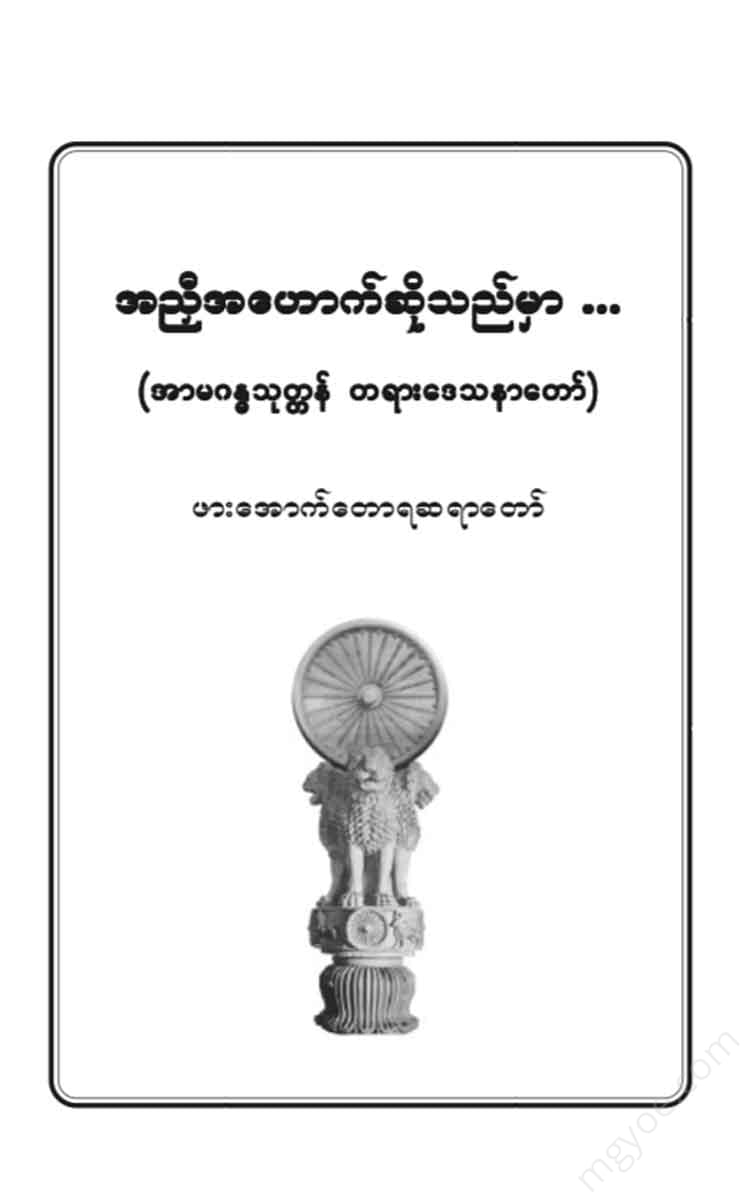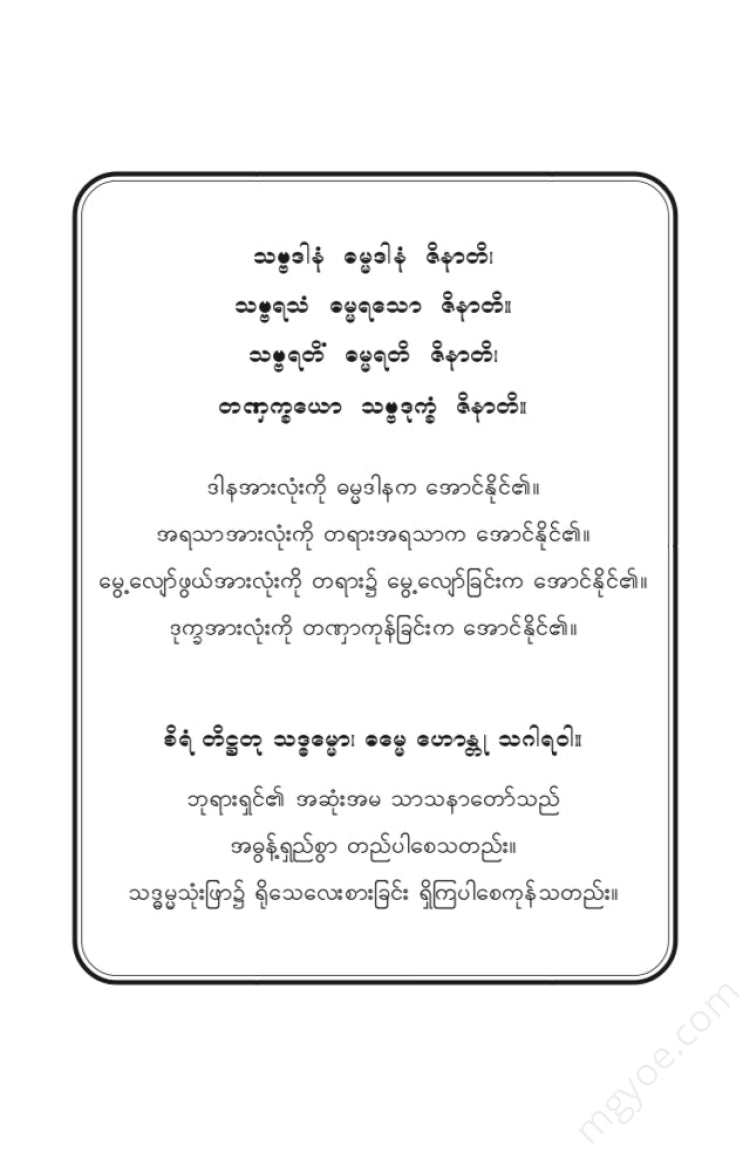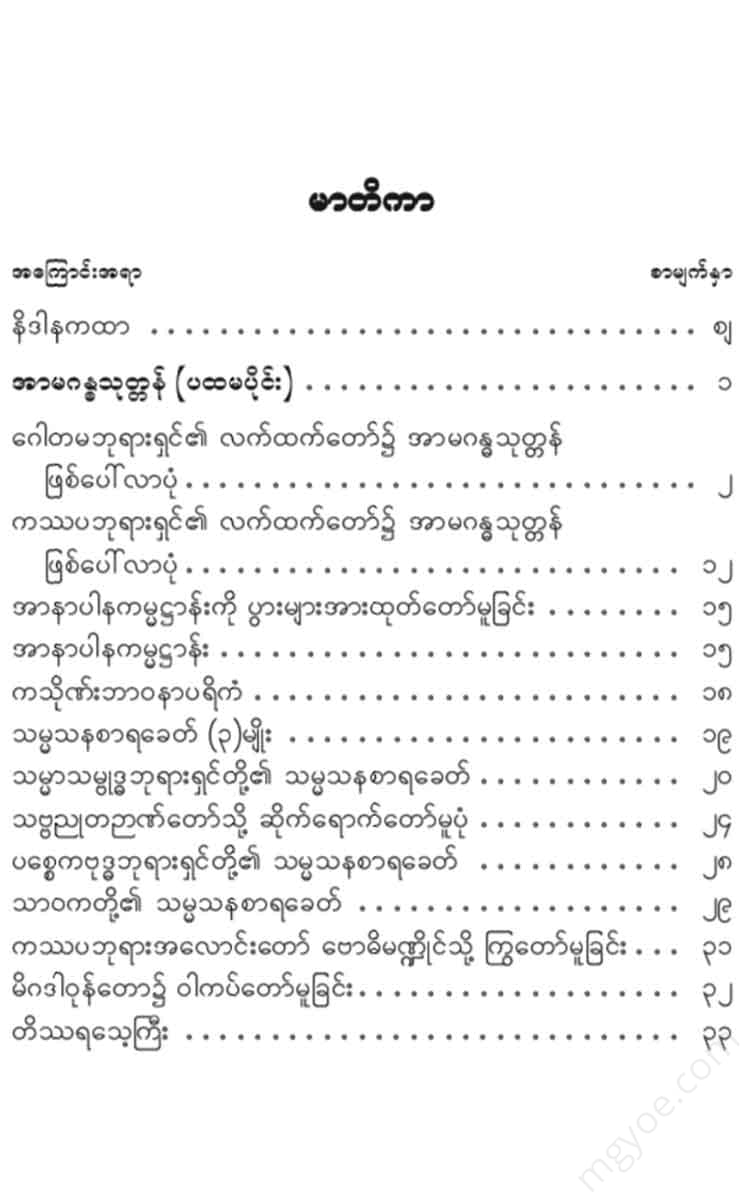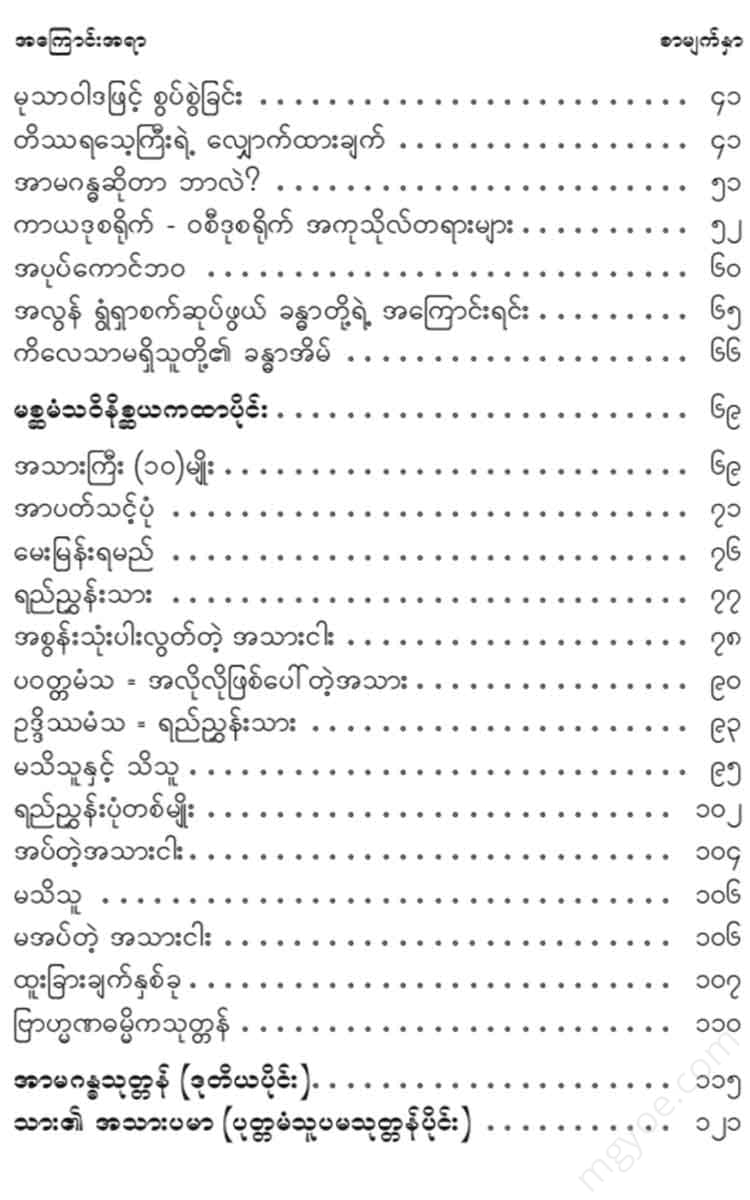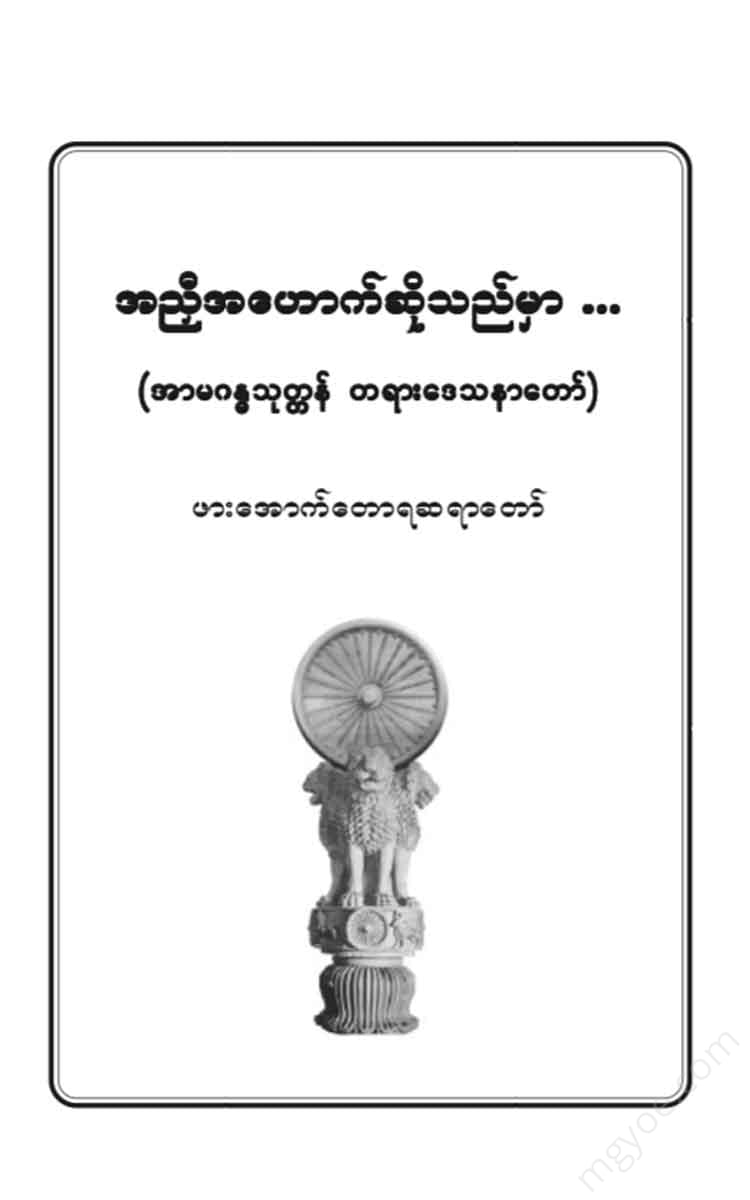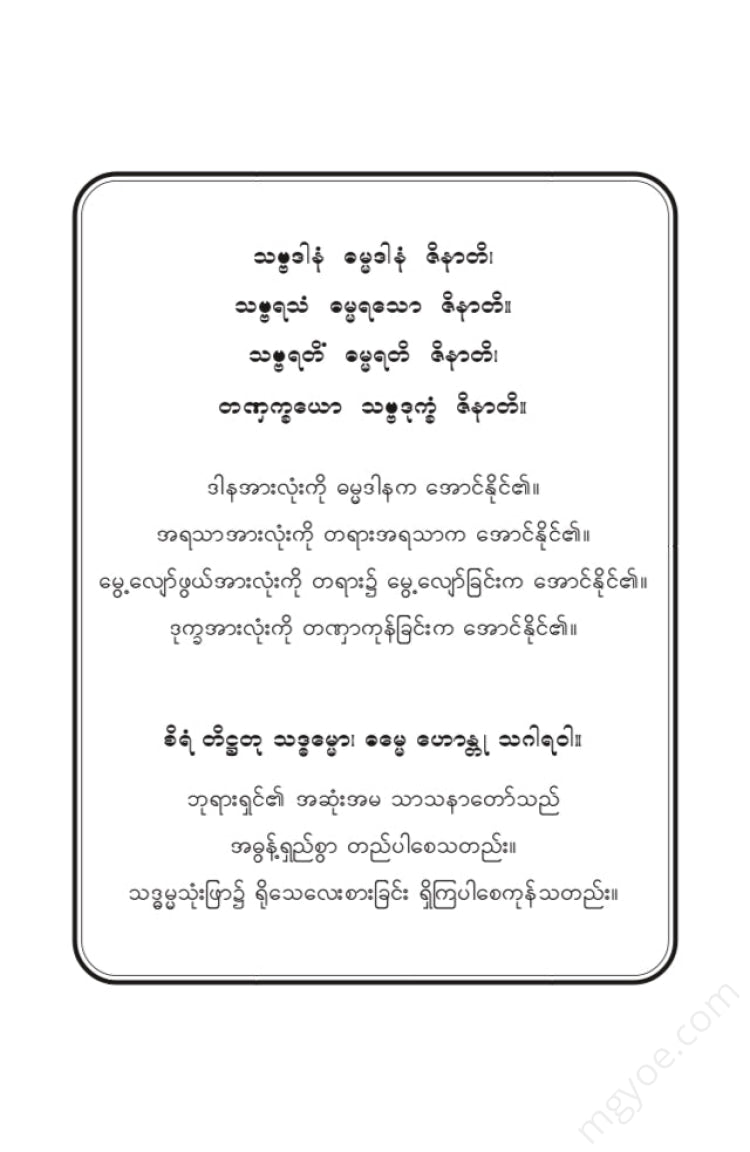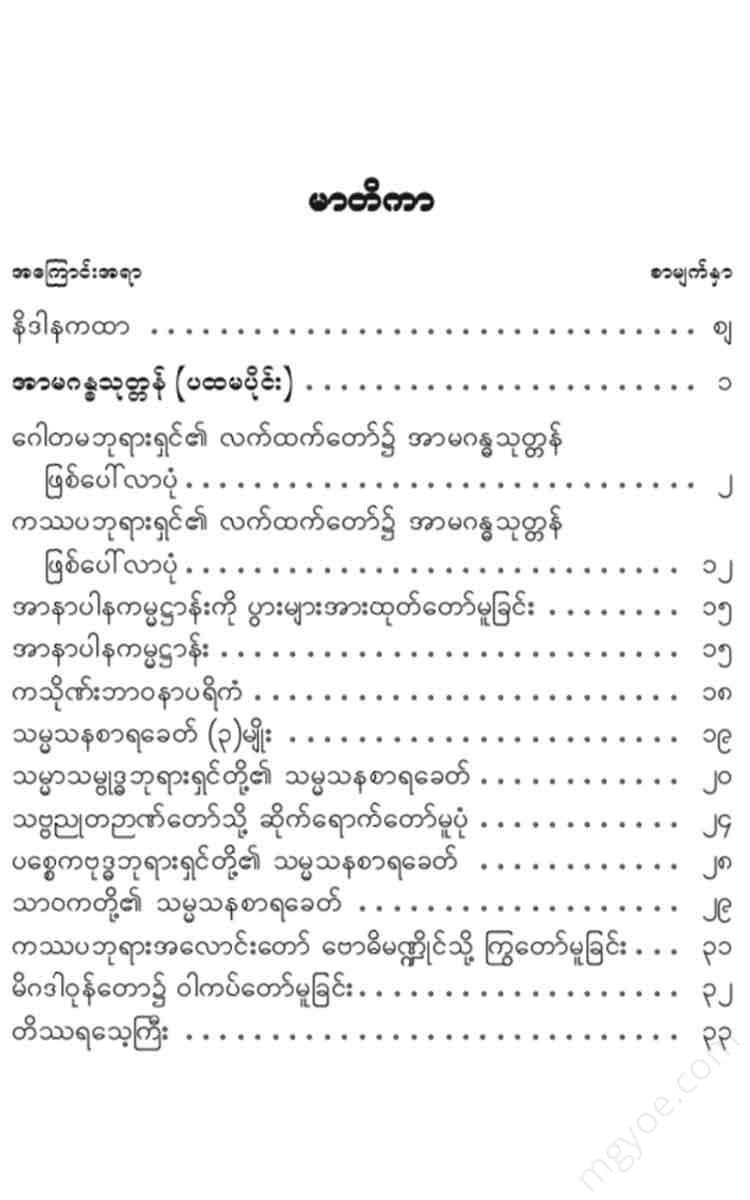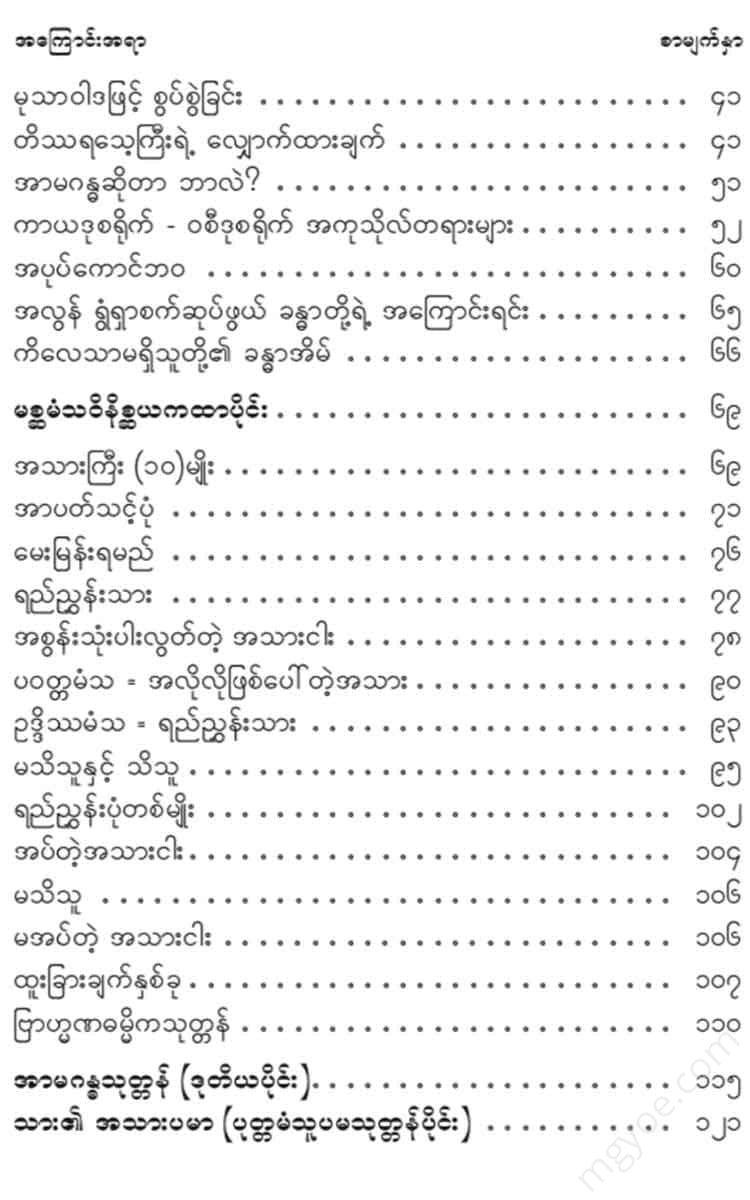Other Websites
The monk of the frog under the tree - What is the meaning of the sound of the roar?
The monk of the frog under the tree - What is the meaning of the sound of the roar?
Couldn't load pickup availability
My dear friends.... Under the craving for the various pleasures known by the sense of taste, such as sweet, sour, bitter, etc., which are known by the sense of taste, especially the sense of smell , is the most evil. There is no self-restraint . Craving for all kinds of pleasures. Craving for the shade, shelter, and buildings where one lives. Craving for the company of friends and associates who are attached to one's company. It is the most evil and the most evil.
O my friends.... You are all like that. Rasanam. Of the various kinds of pleasures, sweet and sour, of the desires that are attached to them. Papiyabhavam = The state of the extremely wicked. Passatta = Look at it. The one who lives only in the great forest where no one comes near. Vatamigam = The wild deer named Vatamiga, whose feet are as swift as the wind. Sinsaya = The gardener named Sinsaya. With the pleasures of the honey-scented grass. Vasam = Let him follow his own desires. He has been able to bring them.
This is the discourse in which the Bodhisattva, King Brahmadatta, in the Ekakanipāda Vatamiga, preached to a large audience of courtiers, led by his chief officer, Senapati, about the evil of attachment to various objects of affection. The Blessed One, Gotama, repeated this discourse while he was residing in the Jetavana monastery in Savatthi, on the occasion of the venerable Sulapindapatikatsama's attachment to attachment.
At one time , the Buddha, the Lord of All-Wise Wisdom, who preached the good Dhamma of the world, including the gods, to attain Nibbana and to escape from the suffering of samsara, was residing in the Veluvana monastery in Rajagaha, which was sheltered by five mountains. One day, a wealthy and wealthy man named Tissa went to the Veluvana monastery and had the opportunity to hear the sweet and good Dhamma from the Buddha. When he entered the religious order and became a monk, his desire to become a monk grew like a heavy rain. He repeatedly begged his parents to let him become a monk. However, since he was the only son who would inherit the inheritance, his parents could not allow him. Then, like the Venerable Ratthapalama, he protested by fasting for seven days. Only then did his parents allow him to enter the religious order and become a monk.
The Buddha ordained that noble Tissa as a monk. The Buddha then stayed at the Veluvana monastery for about half a month, and then, taking the young monk Tissa with him, he set out for the Jetavana monastery in Savatthi. While staying at the Jetavana monastery, the venerable Tissa carried all the thirteen Dhutinas. He went around the city of Savatthi according to his household rules, begging for alms, and establishing a moral code. A long time passed. The venerable Tissa became known as the Thera Tissa, and was as famous in the Buddhist tradition as the full moon in the sky.
However, despite his intense efforts to attain the goal of arahantship, one day the opportunity for his downfall arrived. He had stubbornly stepped into the trap of sensual pleasures because of his desire for pleasure.
One day, a festival was being held at Rajagaha. The parents of the venerable Tissama placed the various jeweled garments and ornaments that Tissa had worn in his human life in a basket and held them in their bosoms. They said, “Long ago, at the festival, our son wore these jeweled garments and ornaments and celebrated the festival. The venerable Gotama took our only son and went to Sāvatthi. Where is our son living now? Where is he standing ? ” They wept, saying thus.
A prostitute, a prostitute who used to show off her beauty and enslave men, heard this news. She approached the parents of the venerable Tissa and, after thoroughly investigating the cause of the weeping rich man's weeping, asked him, "What kind of food does he like?" He asked this question with the intention of catching his mother with a fishing rod of desire. It is a kind of inner knowledge that comes from the successive cycles of life, which does not require attending a university to learn. Then the rich man said, "My son likes such and such food very much," without leaving out any details, and with a pure mind. Then, after mentally compiling all the rich man's words, Daw Wunna Dathi said, "Your Majesty, please give me all the wealth in this house (as heir, heiress, and daughter-in-law). I will bring your son to you." She presented her request.
The parents agreed to this request. They gave Daw Wunna Dathi as much food as she wanted, as well as a large retinue of attendants, and said, “Go, my lady. With your power, bring my son.” Daw Wunna Dathi also traveled to Sāvatthi by train.
When they arrived at Savatthi, they first scouted out the alms-giving route where the Venerable Tissama thera used to go for alms. When they found it, they rented a suitable house on that route. They kept the people who had been sent by the rich man's house inside the house, so that the Venerable Tissama would not see them, and surrounded them only with his own retinue. When the Venerable Tissama thera came for alms, he offered him a bowl of porridge and a delicious meal, and began to bond with him with love.
The hook of greed had begun to sink in. Because he had lacked the knowledge of the path of liberation from the suffering of samsara, which is the path to samsara, he had become entangled in the beginning of greed. He could not bear to go on that path without receiving alms. Since it was too late to part with this kind of work, he continued on that path for many days, aiming to meet that work. Gradually, he went from the state of a layman to the state of a sitting man, using subtle tricks. The monk Tissa, who was hooked by the hook of greed, broke the moral code he had established and easily changed from the state of a layman to the state of a sitting man.
Daw Wunna Dathi was also a person of great beauty and virtue. Although she was not a real rich woman, she had the appearance of a rich woman. She was also a very good cook and could offer food to Ashin Tissa at will. These qualities were qualities that could attract Ashin Tissa, who was lacking in the knowledge of food and the knowledge of liberation from samsara, to follow her desires.
One day, when the Venerable Tissa realized that he could go as he pleased, the Queen Mother, though not sick, pretended to be sick, and hid in the house and prepared various sexual traps for the alms-giving. | When the Venerable Tissa came to receive alms as usual, he arrived at the door of the house. A servant took the monk's bowl and made the monk sit in the house. The Venerable Tissa, not seeing the Queen Mother , asked, "Where is Upasikama?" Then the servants who were sitting around him said, "Venerable sir, your Upasikama is sick. I would like to see you too..."
The venerable Tissa, who was suffering from a lack of knowledge of food and was also bound by lust, broke the moral code he had established and entered the king's bedroom. The king, having already caught her with the hook of lust, caught her with the net of sensual pleasures that he had set. The venerable Tissa also went out and accompanied the king to Rajagaha. Then the Buddha recounted the memorable story of the venerable Tissa.
In the past, the Buddha became a king named Brahmadatta, who ruled the country of Varanasi according to the Dharma and with a white umbrella. In the garden of that king of Varanasi, there was a gardener named Sinsaya. At that time, a deer named Vatamiga, which could run very fast like the wind, came to graze in the king's garden. At first, when it saw Sinsaya, it would run away. Later, it gradually became tame. It would come to graze often.
The gardener picked all kinds of flowers and fruits that grew in the garden and brought them to the king every day. One day, the king asked the gardener, “Dear gardener, did you see anything strange in the garden?” “Your Majesty... I didn’t see anything else. I saw a deer grazing in the garden, Your Majesty…” he replied. “Can you catch that deer?” the king asked. “Your Majesty, if you can get some honey, you can even bring it to the palace.” The king ordered the gardener to produce as much honey as he wanted.
The gardener went to the garden carrying the honey. He smeared the grass that grew where the deer usually grazed with honey and hid himself in a suitable place. When the deer came to the garden to graze, he ate the grass that was covered with honey, but the honey
